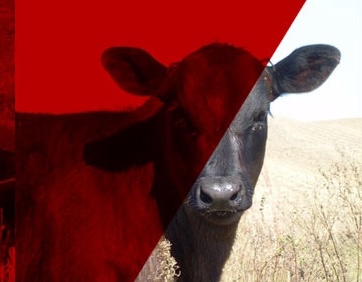A Husker research team has received $5 million from the U.S. Department of Agriculture to research more sustainable dairy and beef production.
The research team is composed of University of Nebraska–Lincoln faculty members from the Department of Animal Science and Department of Biological Systems Engineering, along with researchers from the U.S. Meat Animal Research Center in Clay Center, Nebraska. The team will study the interrelationships among animal genetics, the gut microbiome and nutrition, with the ultimate goal of developing tools and management practices that can lower methane emissions from livestock.
The funding, which is through the USDA's National Institute of Food and Agriculture, is part of the U.S. government's $10 million investment toward projects reducing intestinal methane emissions from ruminant animals. The response aligns with President Joe Biden's Global Methane Pledge made in September 2021.
The project is led by Paul Kononoff, along with fellow Husker faculty Samodha Fernando, Matt Spangler, Galen Erickson, Jessica Sperber, Richard Stowell and Tammy Brown-Brandl. Additional researchers include James Wells and Bryan Neville from the Meat Animal Research Center.
Ruminant animals such as cattle, sheep and goats have a digestive system containing microbes that break down plant materials and feed byproducts through fermentation. This process supplies vital nutrients to the animal while converting plants and other materials that humans are unable to digest into an important protein source.

